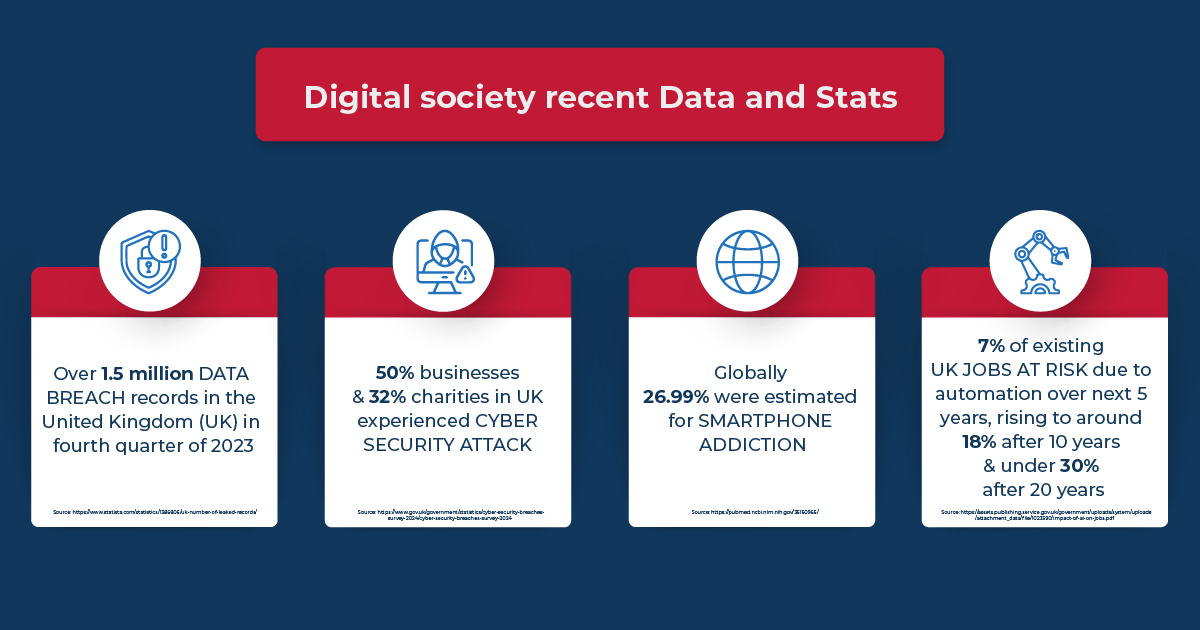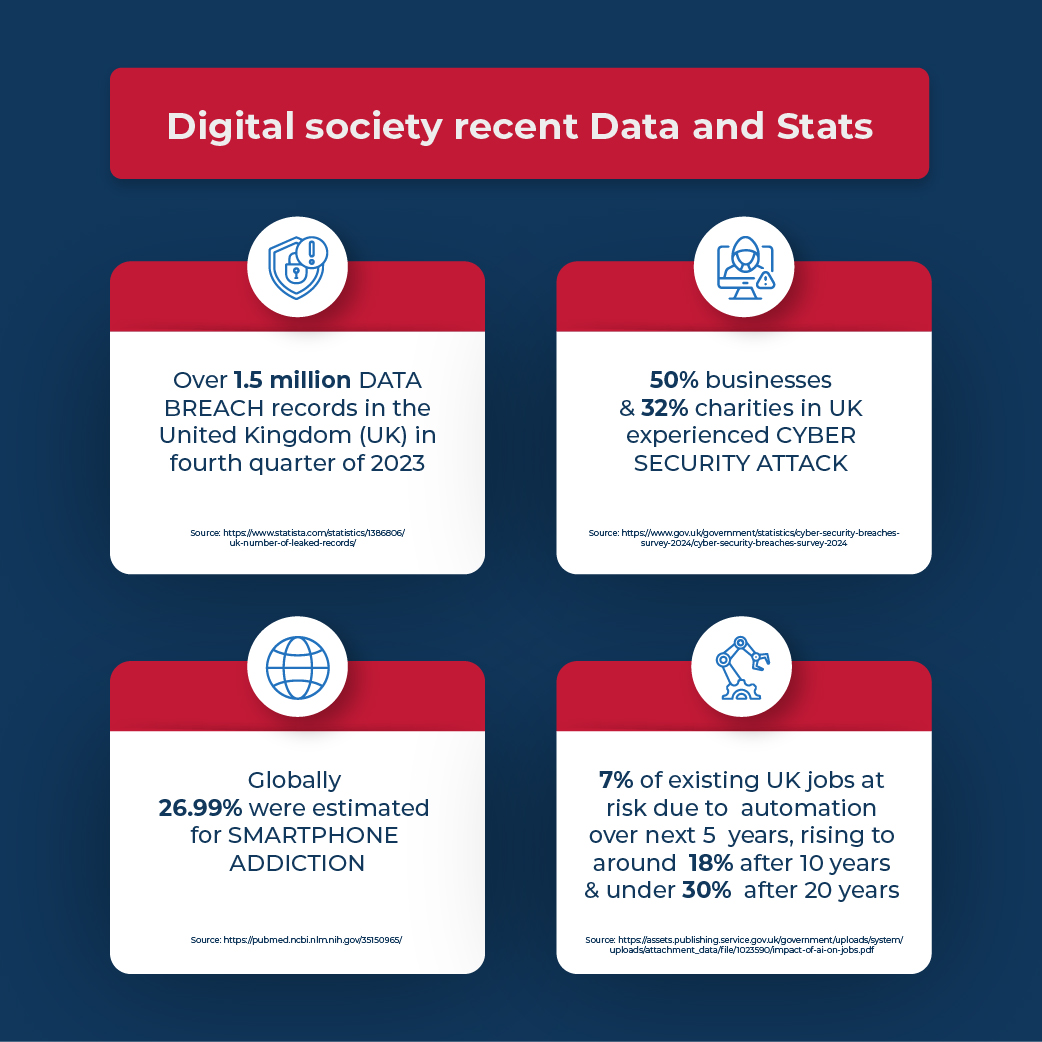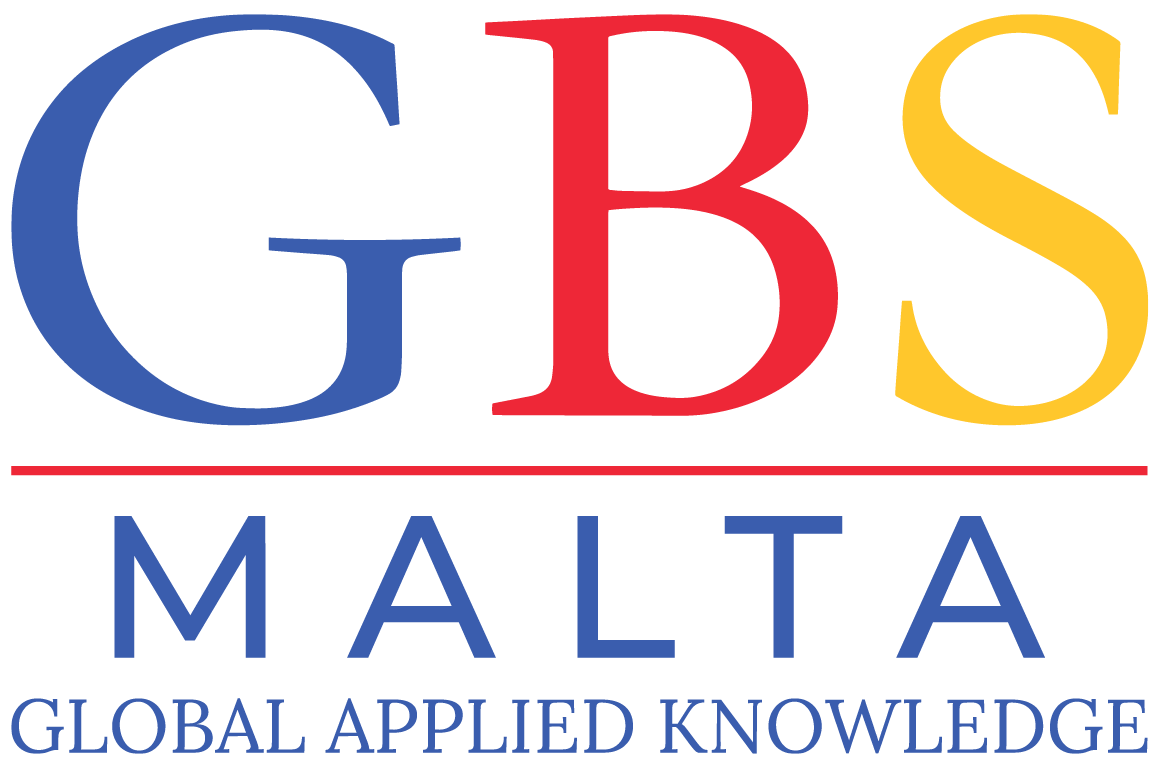A digital society is characterised by integrating digital technologies in all aspects of life, affecting how people interact, work and access information.
Defining digital society

A digital society is characterised by the prevalence of digital technologies in all aspects of life. It includes the widespread adoption of the internet, mobile devices and digital platforms, which have transformed how people interact, work and access information. Technology plays a crucial role in shaping modern society, facilitating instant communication, online commerce and digital content consumption.
Historically, the evolution of digital society began with the advent of the internet and personal computers.
The progression continued with mobile technology and social media, revolutionising communication and information sharing.
Today, the digital society encompasses artificial intelligence (AI), blockchain and the Internet of Things (IoT), further transforming daily life.
As digital technologies evolve, so do society's norms and behaviours, making it essential to understand their implications and opportunities.
Want to join GBS Malta?
The impact of technology on society
Technological advancements have brought many significant societal changes, reshaping daily life. Integrating technology into everyday activities has become commonplace, influencing how people communicate, work and learn.
- Communication has transformed dramatically with the rise of digital platforms, enabling instant messaging, video calls and social media interactions. These technologies have bridged geographical gaps, allowing for real-time global communication.
- Technology has introduced remote work, virtual meetings and digital collaboration tools in the workplace, changing the traditional office environment. Education has also been impacted, with online learning platforms providing access to a wealth of knowledge and resources.
- These changes highlight the pervasive nature of technology in modern life, underscoring its role in creating a connected and efficient society. As digital tools become more integrated into daily routines, they shape societal norms and expectations.
Unveiling the Positive Impacts of Technology on Society
Technology, the catalyst of change, has brought numerous positive changes, particularly in access to information and literacy.
- The proliferation of online learning platforms and digital libraries has made education more accessible, allowing people from all backgrounds to acquire knowledge and skills. This democratisation of education provides equal learning opportunities, regardless of location or financial status.
- Enhanced communication and connectivity are other significant benefits of the digital society.
- Social media platforms and instant messaging services enable people to stay connected with family, friends and colleagues, fostering stronger relationships. Moreover, these platforms facilitate cultural exchange, allowing people to learn about different cultures and perspectives, thus promoting global understanding.
- In the healthcare sector, technology has revolutionised patient care and medical services. Telemedicine allows patients to consult with healthcare professionals remotely, improving access to medical advice and treatment. Digital health records streamline patient information management, enhancing the efficiency and accuracy of medical care. Health-tracking devices and mobile apps also enable individuals to monitor their health, encouraging a proactive approach to wellbeing.
Negative impacts of technology on society
While technology offers many benefits, it also poses challenges, particularly regarding privacy and security.
- Data breaches and cybercrimes have become prevalent, compromising sensitive information and undermining trust in digital systems.
- Surveillance technologies raise concerns about the loss of privacy, as individuals' actions and communications can be monitored without their consent.
- Social issues and mental health are also impacted by digital society. The prevalence of digital devices and online platforms has led to digital addiction and increased screen time, which can negatively affect physical and mental health.
- Online harassment and cyberbullying are significant concerns, particularly among young people, who may experience psychological distress from negative online interactions.
- Economic disparities and job displacement are other challenges associated with the digital society.
- Automation and artificial intelligence are transforming industries, leading to job losses in specific sectors while creating new opportunities in others. However, only some have equal access to these opportunities, exacerbating the digital divide and increasing inequality.


Cultural changes and digital society in modern age
Digital society has brought about significant cultural changes, influencing social norms, behaviours and traditions.
- Communication styles and etiquette have evolved, with digital interactions often prioritising speed and brevity. This shift has impacted how people relate to each other, both online and offline.
- Digital media has profoundly influenced culture, shaping public opinion and trends. The rise of digital art forms and online content creation has democratised artistic expression, allowing anyone with internet access to share their work.
- Influencers and digital celebrities have emerged as new cultural icons, impacting consumer behaviour and societal values.
Preserving cultural heritage in the digital age presents both challenges and opportunities. Digital archiving technologies enable the preservation of historical artefacts and traditions, making them accessible to a global audience. At the same time, digital media allows for blending traditional and modern practices, creating a dynamic and evolving cultural landscape.
Advancing into digital society with GBS Malta

GBS Malta, a beacon of higher education in Malta, offers a comprehensive programme, the Award in Information Technology and Study Skills. This programme is meticulously designed to equip students with the necessary skills and knowledge for successful IT careers, making it a crucial stepping stone in the digital age.
| Course modules: 6 compulsory 10 ECTS Modules |
| Developing Academic Skills |
| The Digital Society |
| Communication and Digital Literacy Skills |
| Internet Technology and the WWW |
| Effective Study and Career Planning |
| Introduction to Computer Hardware and Software |
The Award in Information Technology and Study Skills is designed to give you the knowledge, skills and understanding of information technology needed for further undergraduate studies in related fields. It will also help students develop essential academic, communication and digital skills for their academic and professional advancement while they study in Malta.
You will be ready to advance in your studies or enter a chosen career with the MQF Level 4 Award in Information Technology and Study Skills upon successful completion.
The GBS Malta programme’s curriculum is focused on critical thinking, problem-solving and effective communication while learning about digital society. GBS Malta is committed to quality education and ensures you are equipped to navigate the complexities of the digital world and pursue successful careers in the tech industry.
Here is more about the Award in Information Technology and Study Skills:
| Intakes | February/April/October |
| Duration | One year full-time |
| Mode of Delivery | Face-to-face learning and Online |
| Awarding Institution | GBS Malta |
| Awarded Qualification | Award in Information Technology and Study Skills; Pre-Tertiary Certificate in Information Technology and Study Skills |
| Level MQF Level 4 (UK Level 3) | |
| MQRIC Accredited Status | Accredited |
| Location | Malta |
| Fees | €5,000 per year |
The digital society offers numerous opportunities for growth and innovation. By developing new skills and staying updated with the latest technological advancements, you can position yourself for successful careers in the digital sector. GBS Malta provides an excellent platform to start this journey, offering comprehensive training, support and financial support like scholarships and Get Qualified Scheme. Enrol in the Award in Information Technology and Study Skills programme today and take the first step towards a rewarding IT career in Malta.
Contact us today and begin your journey towards a resilient and successful career.
Frequently asked questions about digital society
2. How does technology impact society?
Technology impacts society by transforming communication, work, education and healthcare, among other areas.
3. What is the digital divide?
The digital divide is the gap between those with access to digital technologies and those without, often leading to economic and social inequalities.
4. What role do influencers play in the digital society?
Influencers shape public opinion, trends and consumer behaviour through their presence on social media and digital platforms.
5. Why is digital literacy critical?
Digital literacy is important for navigating the digital world, understanding the impact of technology and effectively using digital tools.



